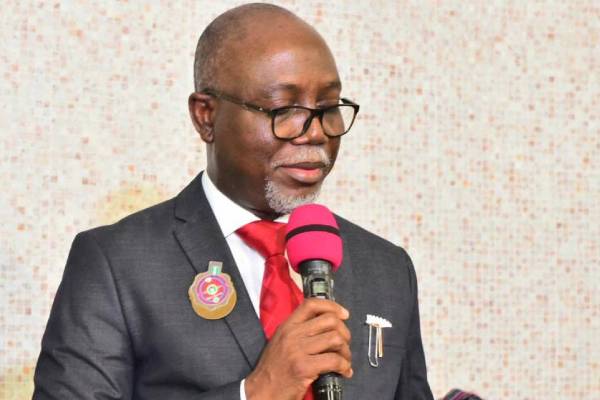Health experts in Ondo State have emphasized the importance of reinforcing the state’s One Health initiative to prevent zoonotic disease outbreaks, urging a collaborative approach among key sectors.
This call to action was made in a communiqué released at the conclusion of a five-day capacity-building program held at the Public Service Training Institute in Ilara-Mokin, Ifedore Local Government Area. The program was facilitated by the State Coordination Office of the World Bank-assisted Livestock Productivity and Resilience Support Project (L-PRES) and involved veterinary doctors, environmental officers, and medical doctors.
Participants highlighted the need for coordinated efforts across various sectors to address zoonotic diseases, which are transmitted from animals to humans. They recommended that the state government boost manpower in relevant Ministries, Departments, and Agencies (MDAs) to enhance capacity.
The training, themed “Using One Health Approach for Disease Monitoring and Investigation, Risk Communication, and the National Action Plan on One Health Implementation for One Health Officers,” aimed to improve the application of the One Health approach across sectors.
Commissioner for Agriculture and Forestry, Olayato Aribo, praised Governor Lucky Aiyedatiwa for his proactive measures in healthcare and agriculture. He noted the recruitment of 1,000 health workers, investment in modern agricultural tools, and other initiatives that underscore the governor’s commitment to food security and public health.
“This administration has made significant strides in upgrading healthcare infrastructure and replacing personnel lost due to retirement and the ‘japa’ syndrome. In agriculture, modern techniques are being promoted to revolutionize the sector,” Aribo said. He added that palliative measures, such as the distribution of grains, tractors, and hand tillers, were in place to support farmers, in line with the administration’s development agenda.
State Project Coordinator, Mr. Olufemi Adeogun, reaffirmed L-PRES’ commitment to its objectives, including capacity training to improve livestock resilience, productivity, and disease surveillance. He noted that the program strengthens integrated surveillance activities, addressing human, animal, and environmental health collectively to mitigate zoonotic disease risks.
Health experts in Ondo State have emphasized the importance of reinforcing the state’s One Health initiative to prevent zoonotic disease outbreaks, urging a collaborative approach among key sectors.
This call to action was made in a communiqué released at the conclusion of a five-day capacity-building program held at the Public Service Training Institute in Ilara-Mokin, Ifedore Local Government Area. The program was facilitated by the State Coordination Office of the World Bank-assisted Livestock Productivity and Resilience Support Project (L-PRES) and involved veterinary doctors, environmental officers, and medical doctors.
Participants highlighted the need for coordinated efforts across various sectors to address zoonotic diseases, which are transmitted from animals to humans. They recommended that the state government boost manpower in relevant Ministries, Departments, and Agencies (MDAs) to enhance capacity.
The training, themed “Using One Health Approach for Disease Monitoring and Investigation, Risk Communication, and the National Action Plan on One Health Implementation for One Health Officers,” aimed to improve the application of the One Health approach across sectors.
Commissioner for Agriculture and Forestry, Olayato Aribo, praised Governor Lucky Aiyedatiwa for his proactive measures in healthcare and agriculture. He noted the recruitment of 1,000 health workers, investment in modern agricultural tools, and other initiatives that underscore the governor’s commitment to food security and public health.
“This administration has made significant strides in upgrading healthcare infrastructure and replacing personnel lost due to retirement and the ‘japa’ syndrome. In agriculture, modern techniques are being promoted to revolutionize the sector,” Aribo said. He added that palliative measures, such as the distribution of grains, tractors, and hand tillers, were in place to support farmers, in line with the administration’s development agenda.
State Project Coordinator, Mr. Olufemi Adeogun, reaffirmed L-PRES’ commitment to its objectives, including capacity training to improve livestock resilience, productivity, and disease surveillance. He noted that the program strengthens integrated surveillance activities, addressing human, animal, and environmental health collectively to mitigate zoonotic disease risks.




